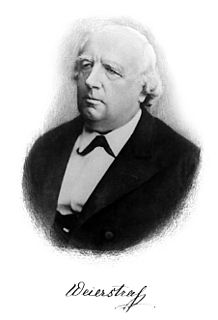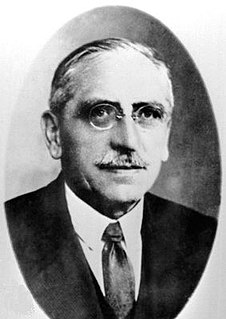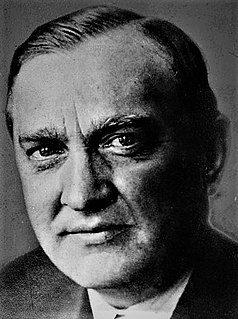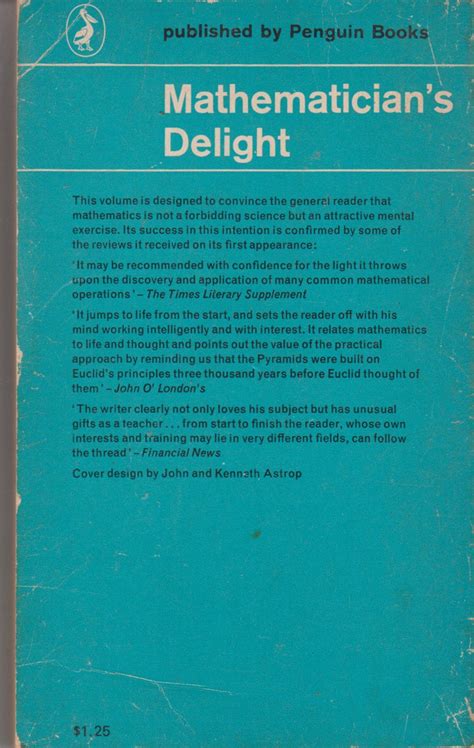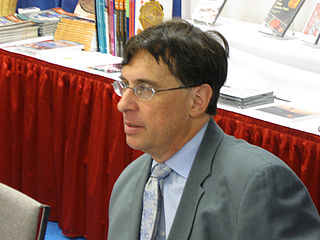A Quote by Frederick the Great
To your care and recommendation am I indebted for having replaced a half-blind mathematician with a mathematician with both eyes, which will especially please the anatomical members of my Academy.
Related Quotes
If a mathematician wishes to disparage the work of one of his colleagues, say, A, the most effective method he finds for doing this is to ask where the results can be applied. The hard pressed man, with his back against the wall, finally unearths the researches of another mathematician B as the locus of the application of his own results. If next B is plagued with a similar question, he will refer to another mathematician C. After a few steps of this kind we find ourselves referred back to the researches of A, and in this way the chain closes.
A mathematician either has a feeling for equations and an understanding and delight in it, not only in the purity of it, but in its beauty as well. I don't think that's something that you learn at school. I think you can get better in mathematics on a school level, but when you're talking about being a mathematician, I think that's definitely a gift of genes or whatever, you know? Whatever your pool is.




